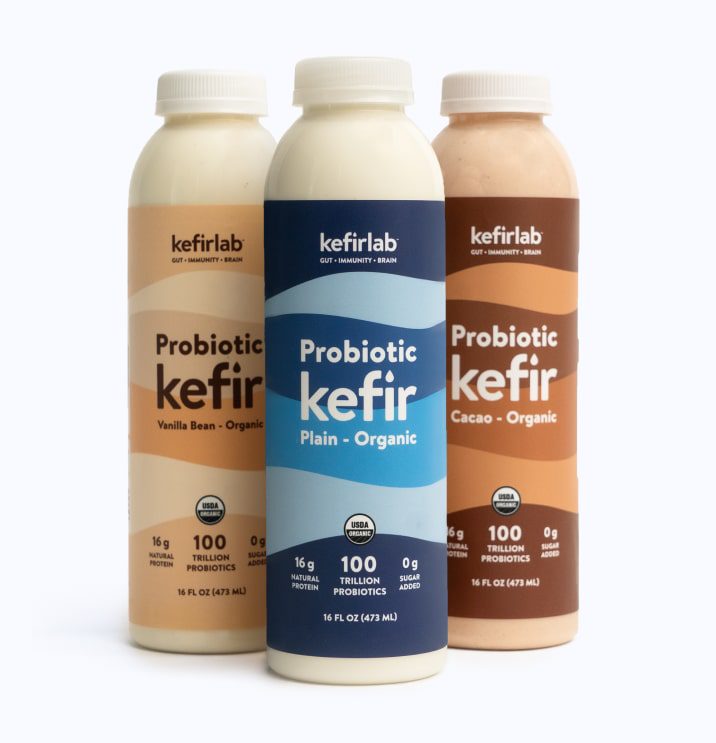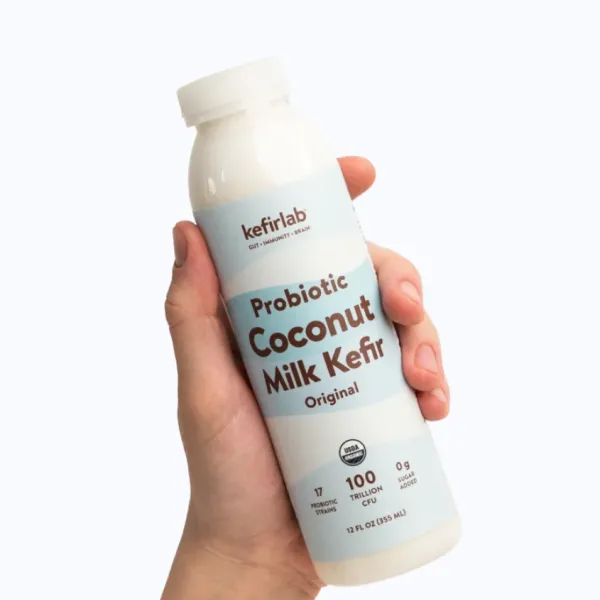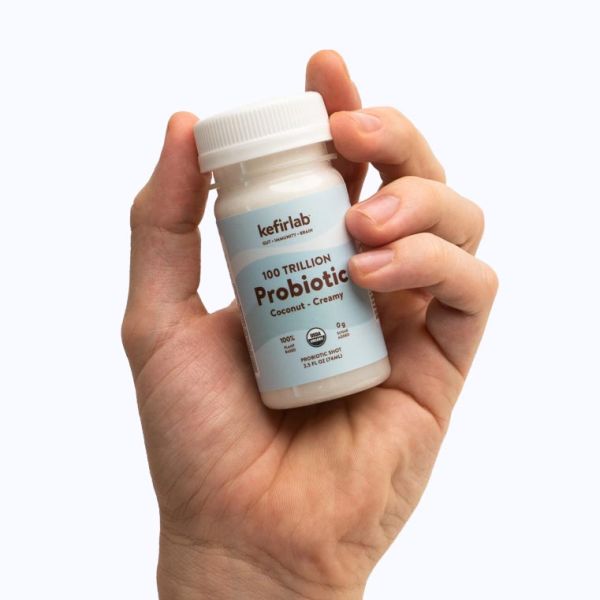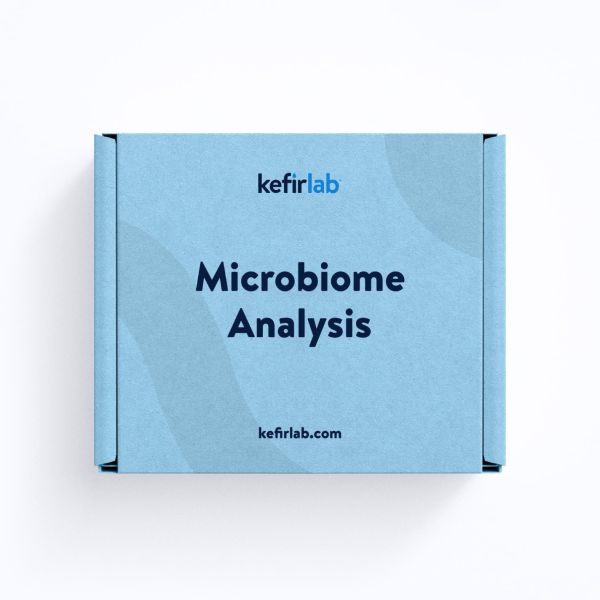What are Probiotics: Benefits, Side effects, Sources [Complete Guide]

In recent years, the importance of maintaining a healthy gut has come to the forefront of discussions around health and wellness.
One key factor in achieving this is the use of probiotics!
In this comprehensive guide, we will delve into the world of probiotics, exploring their benefits, the science behind them, and how to incorporate them into your daily routine for improved gut health.
What are Probiotics?
Probiotics are live microorganisms that can provide a range of health benefits when consumed in adequate amounts.
These beneficial bacteria are often referred to as “good” or “friendly” bacteria, as they help promote a balanced gut environment and support overall health.
Benefits of Probiotics
The benefits of probiotics are vast and varied, with research continuing to uncover new ways in which these microorganisms can support overall health.
Some of the most well-established benefits of probiotics include:
- Improved Digestive Health: Probiotics can help to restore balance within the gut microbiome, which can lead to better digestion and reduce symptoms of gastrointestinal distress, such as bloating, gas, and diarrhea. They have also been found to be effective in preventing and managing certain digestive disorders, such as irritable bowel syndrome (IBS) and inflammatory bowel disease (IBD).
- Enhanced Immune Function: A healthy gut microbiome is essential for a strong immune system, as most of the immune system is located within the gut. Probiotics can help strengthen the immune system by promoting the production of natural antibodies and stimulating the production of immune cells, such as T-lymphocytes and natural killer cells.
- Mental Health Support: Research has shown a strong connection between the gut and the brain, known as the gut-brain axis. This means that the gut’s health can directly impact mental health, with probiotics playing a crucial role in maintaining this balance. Some studies have even found that certain probiotic strains can help to alleviate symptoms of depression, anxiety, and stress.
The Science Behind Probiotics
The science behind probiotics is an ever-growing field, with researchers constantly discovering new strains and potential applications for these beneficial bacteria.
At the heart of this research is the understanding that the gut microbiome plays a critical role in overall health and that maintaining a balanced gut environment is key.
Current research on probiotics focuses on understanding the specific mechanisms by which they exert their beneficial effects. Some of these mechanisms include:
- Competitive Exclusion: Probiotics can help to prevent the growth and colonization of harmful bacteria within the gut by competing for resources, such as nutrients and space. This helps to maintain a balanced gut microbiome and prevent the overgrowth of harmful bacteria that can lead to various health problems.
- Production of Short-Chain Fatty Acids (SCFAs): Probiotics can break down complex carbohydrates, such as dietary fiber, into short-chain fatty acids. These SCFAs serve as a primary energy source for the cells lining the gut and play an essential role in maintaining gut barrier integrity, reducing inflammation, and regulating immune function.
- Modulation of the Immune System: Probiotics can help to strengthen the immune system by promoting the production of natural antibodies and stimulating the production of immune cells. They can also help regulate the immune response, ensuring that it remains balanced and does not become overactive, leading to chronic inflammation and autoimmune disorders.
Prebiotics vs. Probiotics
While the terms “prebiotics” and “probiotics” may sound similar, they refer to two distinct types of substances that play unique roles in supporting gut health.
Prebiotics
Prebiotics are non-digestible carbohydrates, such as dietary fiber, that serve as food for the beneficial bacteria in the gut.
By providing a source of nourishment for these bacteria, prebiotics help to promote their growth and activity, ultimately supporting a healthy gut microbiome.
Probiotics
Probiotics are live microorganisms that provide a range of health benefits when consumed in adequate amounts.
While prebiotics helps to support the growth and activity of the existing beneficial bacteria within the gut, probiotics introduce additional strains of these bacteria to help further promote balance and overall gut health.
Incorporating both prebiotics and probiotics into your daily routine can provide a synergistic effect.
Together they ensure that the beneficial bacteria in your gut have the resources they need to thrive and positively affect your health.
The Role of Probiotics in Gut Health
Maintaining a healthy gut is essential for overall health and well-being, and probiotics play a crucial role in this process.
By promoting a balanced gut microbiome, probiotics can help improve digestion, support the immune system, and even positively impact mental health.
There are several key ways in which probiotics contribute to gut health, including:
- Restoring Balance: Stress, poor diet, and antibiotics can disrupt the gut microbiome, causing harmful bacteria overgrowth and reducing gut health. Probiotics can help to restore balance by introducing beneficial bacteria that inhibit harmful strains.
- Supporting Digestion: Probiotics can aid in the breakdown and absorption of nutrients, ensuring the body receives the nourishment it needs to function optimally. They may also help to alleviate common digestive issues, such as bloating, gas, and diarrhea, by promoting gut balance.
- Reducing Inflammation: Chronic gut inflammation causes various health issues like digestive problems, autoimmune diseases, and even cancer. Probiotics can help lower inflammation by modulating the immune system and promoting anti-inflammatory compounds like short-chain fatty acids.
Probiotics for Specific Health Conditions
While probiotics provide a range of general health benefits, they can also be particularly helpful for managing specific health conditions, such as:
- Irritable Bowel Syndrome (IBS): Probiotics have been shown to be effective in reducing the severity and frequency of IBS symptoms, such as abdominal pain, bloating, and diarrhea.
- Inflammatory Bowel Disease (IBD): Some studies have found that certain probiotic strains can help to reduce inflammation and improve symptoms in individuals with IBD, such as Crohn’s disease and ulcerative colitis.
- Allergies and Asthma: Probiotics may help to modulate the immune system and reduce the severity of allergic reactions, as well as improve lung function in individuals with asthma.
- Vaginal Health: Probiotics can help to maintain a healthy balance of bacteria within the vagina, which can help to prevent infections, such as bacterial vaginosis and yeast infections.
It is important to note that the effectiveness of probiotics for these specific health conditions may vary depending on the individual and the specific strains of probiotics used.
Always consult with a healthcare professional before using probiotics to manage a specific health condition.
Where Can You Find Probiotics?
Probiotics can be found in a variety of food sources, such as fermented foods, as well as dietary supplements.
They can aid digestion, support the immune system, and even positively impact mental health.
It is important to note that probiotics are not a one-size-fits-all solution for everyone. Each person has a unique gut microbiome, which is the collection of bacteria, viruses, and other microorganisms that inhabit the gastrointestinal tract.
This means that the specific strains and amounts of probiotics that may benefit one person may not be the same for another.
Understanding your needs and working with a healthcare professional can help you find the right probiotic solution for your health.
Probiotic Foods vs. Supplements
Probiotics are good bacteria that help our body function properly. We can get probiotics from food sources and dietary supplements. Both options have advantages and things to think about.
Probiotic-rich foods, such as fermented foods like yogurt, kefir, sauerkraut, kimchi, and kombucha, provide a natural source of beneficial bacteria that can help to support gut health. Incorporating these foods into your diet can be an enjoyable and delicious way to boost your probiotic intake while providing additional nutrients and health benefits.
But, it can be challenging to obtain a consistent and adequate dose of specific probiotic strains through food sources alone.
This is where probiotic supplements can be particularly beneficial, as they provide a concentrated and controlled dose of specific strains clinically proven to provide health benefits.
When choosing a probiotic supplement, it is essential to look for products that have been independently tested for quality, potency, and purity.
Additionally, be sure to select a supplement that contains the specific strains of probiotics that have been shown to be effective for your individual needs and health goals.
Probiotic-rich Foods to Improve your Gut Health
Incorporating probiotic-rich foods into your diet can be a delicious and enjoyable way to support gut health and overall well-being. Some of the best sources of probiotics include:
- Yogurt: Made by fermenting milk with lactic acid bacteria, a rich source of probiotics, calcium, protein, and vitamin D. Choose yogurt with live and active cultures for optimal probiotic benefits.
- Kefir: A fermented dairy product, similar to yogurt, containing probiotic strains, calcium, protein, and B vitamins. You can consume kefir alone or use it in smoothies or other recipes.
- Sauerkraut: Made by fermenting shredded cabbage with lactic acid bacteria, a good source of probiotics, fiber, and vitamin C. Choose raw, unpasteurized sauerkraut to ensure that the beneficial bacteria are intact during processing.
- Kimchi: A traditional Korean dish made from fermented vegetables, kimchi is rich in probiotics and vitamins, minerals, and antioxidants. You can consume kimchi as a side dish, added to recipes, or even use it as a condiment.
- Kombucha: A fermented tea beverage with a variety of probiotic strains, beneficial organic acids, and antioxidants. You can find kombucha in various flavors and take it as a refreshing alternative to sugary drinks.
By incorporating these probiotic-rich foods into your daily routine, you can support a healthy gut microbiome and reap the many health benefits that come with it.
How to Incorporate Probiotics into Your Daily Routine
Including probiotics in your daily routine can be simple and enjoyable since various food sources and supplements are available. So here are some tips for adding probiotics to your daily routine include:
- Start with Food: Begin by incorporating probiotic-rich foods like yogurt, kefir, sauerkraut, kimchi, and kombucha into your diet. Experiment with different recipes and flavors to find options you enjoy and can easily incorporate into your regular meals and snacks.
- Consider a Supplement: If you cannot obtain a consistent and adequate dose of specific probiotic strains through food sources alone, consider adding a probiotic supplement to your daily routine. Ensure to choose a high-quality product that contains the specific strains of probiotics that are effective for your individual needs and health goals.
- Gradually Increase Your Intake: When introducing probiotics into your diet, it is essential to start slowly and gradually increase your intake to allow your body time to adjust. This can help minimize potential side effects, such as gas and bloating.
- Be Consistent: To experience the advantages of probiotics fully, it’s important to consume them regularly since the helpful bacteria require time to establish themselves in your gut and deliver their beneficial impact on your well-being.
- Consult with a Healthcare Professional: If you are unsure which probiotics are right for you or have specific health concerns, consult with your healthcare professional for personalized guidance and recommendations.
5 Common Misconceptions About Probiotics
Despite the growing awareness of the benefits of probiotics, several common misconceptions can lead you to confusion and misinformation. Some of these misconceptions include:
- All Probiotics Are the Same: In reality, there are countless different strains of probiotics, each with its own unique properties and health benefits. It is essential to choose a probiotic product that contains the specific strains that have been shown to be effective for your individual needs and health goals.
- Probiotics Cure All Digestive Issues: They are not a cure-all solution for every ailment. Work with your healthcare professional to determine the underlying cause of your digestive issues and develop a comprehensive treatment plan.
- More Probiotics Are Always Better: It is important to stick to the recommended dosage and frequency indicated on the product label. Consuming excessive amounts of probiotics can lead to unwanted side effects, such as gas, bloating, and diarrhea.
- All Probiotic Products are Created Equal: Unfortunately, not all probiotic products are created equal; some may not contain the strains or potency indicated on the label. Choose a high-quality product from a reputable manufacturer independently tested for quality and purity.
- Probiotics Only Benefit Digestive Health: While probiotics are most often associated with digestive health, they can have many benefits throughout the body, including supporting immune function, promoting mental health, and even improving skin health.
The Future of Probiotics in Health and Wellness
As research continues to uncover new ways in which probiotics can support overall health, the future of these beneficial bacteria looks bright.
Advances in technology and research methods allow a more nuanced understanding of the gut microbiome and the specific mechanisms by which probiotics exert their positive effects.
One area of particular interest is using probiotics in personalized medicine, which involves tailoring treatments to an individual’s unique genetic, environmental, and lifestyle factors.
By understanding an individual’s unique gut microbiome and health needs, healthcare professionals can develop targeted probiotic interventions that are more effective and personalized.
Additionally, researchers are exploring the potential of probiotics in areas such as weight management, skin health, and even cancer prevention.
As probiotics continue to evolve and expand, we will likely see even more exciting developments and applications in the years to come.
Conclusion & Key Takeaways
Probiotics are a powerful tool for supporting gut health and overall well-being, with many benefits extending far beyond digestion.
By understanding the science behind probiotics, incorporating probiotic-rich foods and supplements into your daily routine, and working with your healthcare professional to find the right probiotic solution for your needs, you can harness the power of these beneficial bacteria to support optimal health and wellness.
Some key takeaways to keep in mind:
- Probiotics are live microorganisms that provide a range of health benefits when consumed in adequate amounts.
- Probiotics can support digestive health, immune function, and even mental health.
- Probiotics can be obtained through food sources and supplements, each offering unique benefits and considerations.
- Introducing probiotics into your daily routine can be simple and enjoyable, with various options available to suit your needs and preferences.
- Always consult with a healthcare professional before using probiotics to manage a specific health condition or if you have any concerns about their use.
By following these guidelines and incorporating probiotics into your daily routine, you can unleash the power of these beneficial bacteria and support a healthy gut microbiome for optimal health and wellness.
Join Kefir Club
Like our probiotics, our emails are clean and good for you. Spam Free. Unsubscribe anytime.














